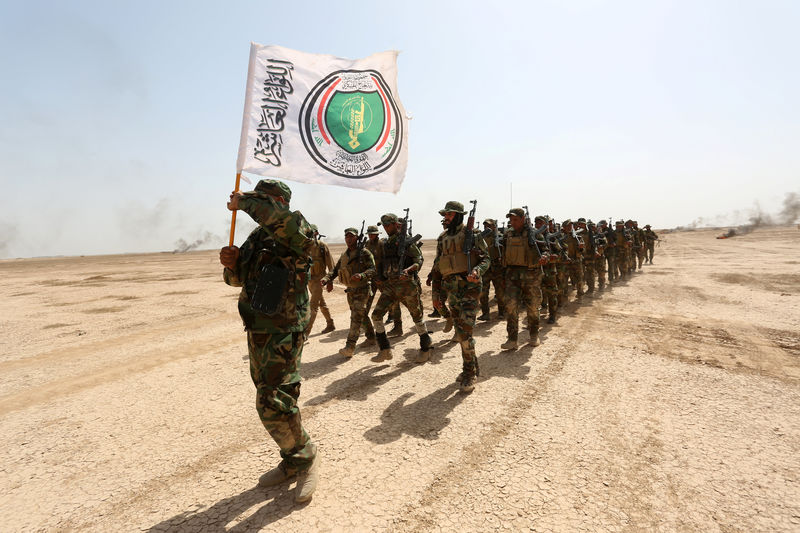BAGHDAD (Reuters) - Iraqi Prime Minister Haider al-Abadi said on Wednesday that Washington would send more U.S. troops to help local forces in the battle to retake Mosul from Islamic State expected later this year.
"American President Barack Obama was consulted on a request from the Iraqi government for a final increase in the number of trainers and advisers under the umbrella of the international coalition in Iraq," he said in a statement.
In Washington, a U.S. official confirmed the United States was "prepared to provide additional U.S. military personnel to train and advise the Iraqis as the planning for the Mosul campaign intensifies." The official did not elaborate.
Abadi met Obama and Vice President Joe Biden last week on the sidelines of the U.N. General Assembly in New York, though it was not clear whether the deal was sealed there.
U.S. Army General Joseph Votel, who oversees U.S. forces in the Middle East, told Reuters in July the U.S. military expected to seek additional troops in Iraq.
The United States has at least 4,400 troops in Iraq as part of a U.S.-led coalition providing extensive air support, training and advice to the Iraqi military, which collapsed in 2014 in the face of Islamic State's lightning advance towards Baghdad.
Iraqi forces, including Kurdish peshmerga forces and mostly Iranian-backed Shi'ite militias, have retaken around half of that territory over the past two years but Mosul, the largest city under the ultra-hardline group's control anywhere across their self-proclaimed caliphate, is likely to be the biggest battle yet.
U.S. and Iraqi commanders say the push on the city could begin by the second half of October.
Current U.S. troop levels in Iraq are still a fraction of the 170,000 deployed at the height of the nine-year occupation that toppled Saddam Hussein in 2003, sparking an al Qaeda-backed insurgency and throwing the country into a sectarian civil war.

Loath to become mired in another conflict overseas, the White House has insisted there would be no American "boots on the ground" and while coalition troops were initially confined to a few military bases, Americans have inched closer to the action as the campaign progresses.
